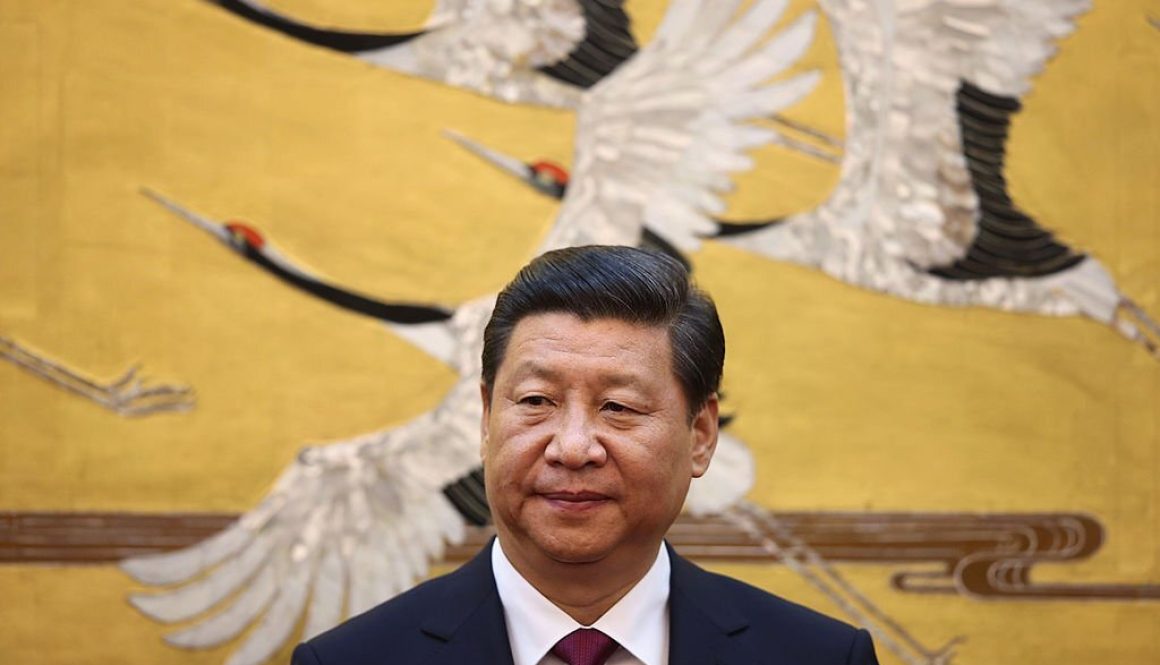Xi Jinping Reaffirms China’s National Security Focus in NPC
The National People’s Congress (NPC), China’s largest annual political event, ended with President Xi Jinping securing an unprecedented third term in office and influencing important policies that will guide the country’s economy in the coming year. Xi was unanimously endorsed for another five years as China’s president, making him the longest-serving head of state in Communist China’s history.
In his speech, he reemphasises his effort for national rejuvenation on all fronts and mentions putting the people first in this effort. He wants to gain more trust and ‘independence’ to apply his political goals and ambition for China. President Xi Jinping emphasized the importance of coordinating development and security, stating that “security is the foundation for development, stability is the prerequisite for prosperity.” The statement highlights the critical role of security and stability in achieving long-term economic growth and prosperity. A country cannot focus solely on economic development and neglect its national security concerns without jeopardizing its economic stability and growth.
A stable and secure environment provides a foundation for economic growth by instilling investor confidence, fostering domestic entrepreneurship, and promoting innovation. This is particularly true in the case of China, which has undergone rapid economic growth over the past few decades and is now one of the world’s largest economies. By prioritizing security and stability, China seeks to create an environment that fosters economic growth and prosperity while protecting the interests of its citizens. This involves safeguarding the country’s borders and territorial integrity and addressing various security challenges, including geopolitical tensions.
Xi’s effort against external threats
Xi Jinping said, “We must fully promote the modernisation of national defence and the armed forces, and build the people’s armed forces into a Great Wall of Steel that effectively safeguards national sovereignty, security and development interests.” Chinese President Xi Jinping vowed to strengthen national security and build a robust military during his third term in the dynamic security threats and challenges on regional and global scales.
Expectedly, Xi’s speech has a nationalist tone, referencing China’s hardships at the hands of “bullying foreign powers” and the Communist Party’s leadership in overcoming national humiliation. Xi sees China as a powerful nation that has been mistreated and that it is the Communist Party’s responsibility to ensure that the world stage needs to respect China. Xi wants the people to believe that he could protect China, as he refocuses the statement on external threats, so China needs to strengthen its domestic capability.
There are hard and soft dimensions of security linkage between the triad. Regarding military matters, the relationship between security, stability, and the economy is straightforward and apparent. A nation can only afford to spend on military expenditures when its economy is robust and flourishing. Additionally, it is simpler to allocate funds for defence when there is an imminent and genuine threat from outside. In such circumstances, decisions to invest in defence are made swiftly due to pressure among states. John J. Mearsheimer’s offensive realism theory asserts that states are in constant competition with one another for power and security. In the context of China, this theory suggests that China seeks to expand its power and influence in the international system to secure its interests.
Based on this theory, it appears that China is pursuing a multi-dimensional strategy that involves internal economic and military reforms and assertive and effective diplomacy on the external level. China’s economic growth has been a key factor in its rise as a major global player, and it has been able to leverage its economic power to pursue its strategic goals. China’s internal economic reforms have focused on increasing productivity, and China has also been investing heavily in its military, modernizing its forces and expanding its capabilities.
On the external front, China has pursued assertive diplomacy to advance its strategic interests while avoiding direct military confrontation. Given the dynamic ‘external’ security threats and challenges on regional and global scales, China’s focus on national security is unsurprising. As one of the biggest economic power, China has decided to raise its annual military budget, reflecting rising geopolitical tensions and a regional arms race. China is facing territorial disputes with neighbouring countries, such as Japan, India, and Vietnam, as well as growing tensions with the US over trade, technology, and human rights issues. Chinese President Xi Jinping also calls to strengthen national security and reunify Taiwan with mainland China.
Xi’s speech focuses on consolidating power, asserting China’s influence, and reunifying Taiwan with mainland China. Xi has emphasised the need to promote the peaceful development of cross-strait relations while opposing external interference and Taiwan’s separatist activities. These ambitions have invited more international actors, including the US, to suppress China. Chinese Foreign Minister Qin Gang’s recent statement highlights China’s assertive stance on Taiwan. Qing reiterated that Taiwan is a domestic issue and no other country has the right to interfere, calling it a “red line” that Washington must not cross. This statement comes amid growing tensions between China and the US, exacerbated by the Biden administration’s approach towards Taiwan.
In addition, China has also been investing heavily in its military capability and expanding its presence in strategic regions such as the South China Sea and the Indian Ocean. Xi has also consolidated his control over the military and civilian arms of government, becoming China’s most assertive and dominant leader in a generation. He has unleashed sweeping reforms on the Chinese military, making it a modern fighting force and building its navy into the largest in the world.
